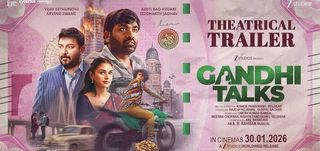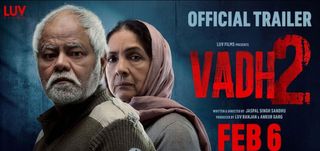Parzania Movie Review
Based on a true-life incident, this tale of our times narrates the plight of a Parsi couple searching for their young son who went missing since the riots broke out in Gujarat in 2002. They could well be searching for humanity.
The film by Rahul Dholakia, a US-based Gujarati filmmaker, takes us beyond the headlines, bang into the heart of darkness.
Cyrus Peethawala, a projectionist at an Ahmedabad cinema hall, his wife Shernaz and their children - son Parzan and a daughter Dilshad - live in the walled part of the city.
The little joys of the middle-class family evaporate on Feb 28, 2002, when many parts of Gujarat, including Ahmedabad, saw the beginning of yet another round of sectarian strife - triggered this time by the burning of a train coach in Godhra a day earlier.
The film has a chief minister - who thankfully does not physically resemble Gujarat Chief Minister Narendra Modi - warning that perpetrators will not go unpunished. The televised message sends a signal to goons associated with a rightwing Hindu organisation to take "revenge" on the minority Muslim community.
A mob goes on a rampage in the building where the Peethawalas live with their Muslim as well as Hindu neighbours. While the mother and daughter are saved, the father, returning from work, learns that Parzan is missing.
Living in a relief camp for a while before taking shelter at a place rented by an American friend, the family begins the search for the young child.
Azar, the boy who inspired the story, is still missing. The film ends with an appeal to provide information, if any, on his whereabouts.
In spite of many peripheral weaknesses, of the kind Satyajit Ray termed as "spelling mistakes in a beautiful sonnet", Parzania is a rare film in that it deals with Gujarat's communal polarisation in an altogether genuine and honest manner.
At the same time, it goes beyond the specifics of the situation and highlights the universal aspects of the narrative - loss of human values in the face of sectarian violence across the globe.
Apart from Naseeruddin Shah, it is Sarika - remembered by many as a yesteryear glamour girl - who is a pleasant surprise as the gritty mother in her comeback to the big screen after a long gap.
The film, however, belongs predictably to Naseer.
Looking for his child amid a heap of corpses, praying to corrupt (and partisan) police officials for help, going into a nine-day seclusion to "purify" himself for a divine help following a priest's advice, seating in an empty theatre and in hallucination watching his child's funeral being projected on the screen - Naseer pierces into the hearts of all of us.
As Cyrus breaks down imagining vultures swooping down on the body of his Parzu or as Shernaz tells a human rights commission hearing that all they want is their child back, the couple appeals to a part of us that lies hidden in us, beneath the surface of drawing-room debates on secularism and pseudo-secularism.
Their scream should wake us up. Those pretending to be asleep, of course, cannot be woken up.



















